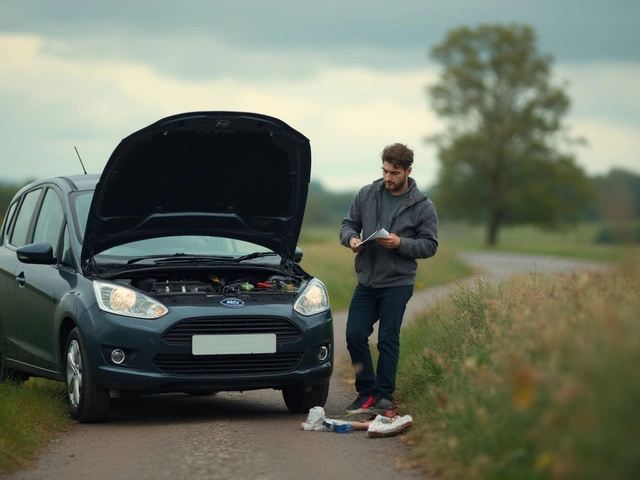Car Battery Lifespan: What to Expect and How to Keep It Healthy
If you’ve ever been stuck with a dead car on a rainy morning, you know a good battery matters. Most drivers assume a battery will last forever, but the reality is different. Knowing the typical lifespan, what wears a battery out, and how to catch problems early can save you time, money, and a lot of frustration.
What Determines a Battery’s Life
Even the best‑quality battery follows a predictable aging curve. Temperature is the biggest enemy – extreme heat speeds up the chemical reactions inside, while freezing weather can make the charge sluggish. If you live in a place with hot summers or bitter winters, expect the battery to lose a few years compared to milder climates.
How often you drive matters too. Short trips that don’t let the alternator fully recharge the battery cause a slow drain. The more you use the car for longer journeys, the healthier the battery stays. Rough driving habits, like constantly revving the engine or using accessories (lights, radio) while the engine is off, also cut life short.
Age is inevitable. Most lead‑acid batteries are designed for 3‑5 years of normal use. Some premium AGM or lithium‑ion units can push 6‑8 years, but they still age even when you’re not using them. Regular maintenance – keeping terminals clean, checking electrolyte levels on serviceable batteries, and ensuring tight connections – can shave months off the wear.
Warning Signs and When to Replace
Don’t wait for a total failure. A slow‑cranking engine, dim interior lights, or a clicking sound when you turn the key all hint that the battery is losing power. If a dashboard battery warning light stays on after you start the car, the charging system or the battery itself is likely at fault.
Another easy check is the voltage test. A fully charged battery should read around 12.6 volts at rest. Anything below 12.2 volts suggests it’s weak. Most auto shops, including Northwich Tyres Centre, can perform a quick load test to see if the battery can handle the starter’s demand.
When it’s time to replace, you have two options: DIY or professional install. Swapping a battery yourself is simple – just disconnect the negative terminal, then the positive, remove the old unit, place the new one, and reconnect (positive first, then negative). Safety glasses and gloves are a good idea because batteries can spill acid.
If you’re not comfortable, let the experts handle it. Northwich Tyres Centre offers battery testing, installation, and disposal of the old unit. They’ll also check the alternator and starter to make sure nothing else is dragging the battery down.
To stretch the life of a new battery, keep the terminals clean with a wire brush, avoid leaving lights on, and try to give the car a decent drive at least once a week. In cold weather, park in a garage or use a battery blanket to keep the temperature up.
In short, expect about 3‑5 years from a typical car battery, watch for the signs listed above, and don’t skip regular checks. A little attention now means fewer surprise breakdowns later, and you’ll keep your car running smooth without extra cost.
 23 March 2025
23 March 2025
How Long Do Car Batteries Last? An Essential Guide for Drivers
Exploring how long car batteries typically last, this guide delves into the factors impacting battery lifespan, from climate to driving habits. It also covers signs your battery might need replacing and offers tips to extend its life. Whether you're new to car maintenance or just looking for a refresher, this article is packed with practical advice for keeping your car running smoothly.
Tags
- car maintenance
- engine oil
- spark plugs
- brake pads
- engine performance
- vehicle maintenance
- spark plug replacement
- windshield wipers
- fuel pump
- suspension parts
- clutch replacement
- oil change
- clutch kit
- car suspension
- car performance
- air filters
- car radiator
- exhaust systems
- fuel pump replacement
- engine misfire






0